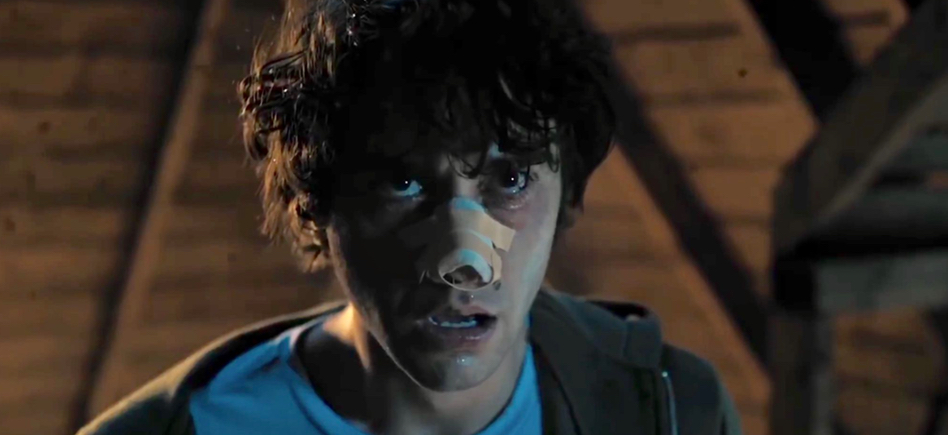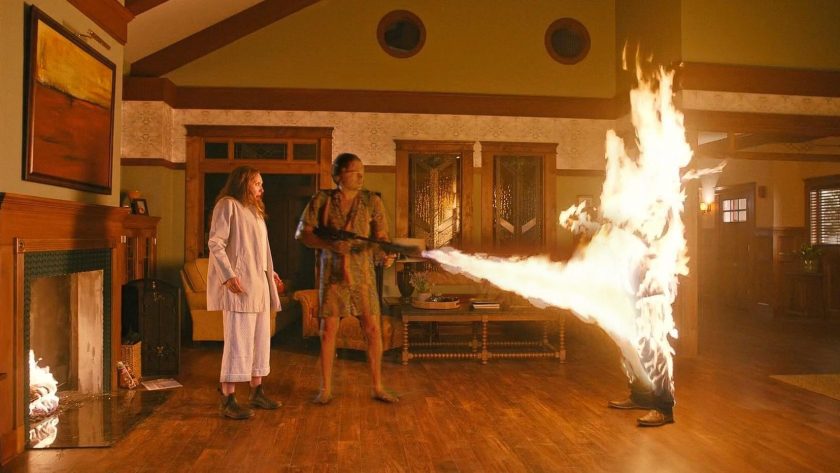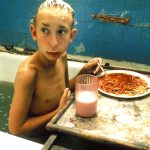Aadesh Gupta explores his lingering thoughts on how Hereditary gets horror right and the power of true horror over shock value.
The first time I watched Hereditary was in the cinema, soon after its release in 2018, and ever since I’ve been intrigued by the ways in which it manages to deeply unsettle its audience.
Horror is one of the most fascinating genres. It allows the filmmaker to choose from several sub-genres and techniques to frighten their audience. However, many modern horror films seem to tirelessly rely upon the same tropes rather than further exploring the genre. Many may consider jump scares and gore to be ‘scary’ but, in my opinion, both are highly superficial methods of engaging the audience. In order for a jump scare to be truly impactful, effective tension and atmosphere building, as well as thoughtful acting and directing are needed. Unfortunately, a lot of modern horror films seem to overlook these aspects and decide to overdramatise their jump scares. An oversimplified description of a modern jump scare would be: ‘a loud noise occurs after everything goes quiet.’ This hardly requires any skill from a filmmaking standpoint and only provides the audience with a momentary cheap thrill.
Excessive gore is another very straightforward way of attempting to engross the audience, but to me it is still very much surface level. Gore is bound to be visually disturbing. It does not require much thought in its execution. I would even say, to a large extent, gore is not ‘scary.’ Some modern horror franchises, such as The Conjuring series and the Insidious series, seem to have had their sequels plagued by jump scares. Others, like the Saw and Final Destination series, purely rely on the shock factor given by gore. I do agree that both films franchises have a separate appeal of their own; they provide a different kind of excitement, and finding that enjoyable is completely understandable. Having said that, I feel like there is a confusion between being temporarily startled and being utterly scared. But what is the meaning of being scared? What is true horror?

I do find it challenging to summarise the concept of fear in words being such a psychological and powerful human emotion, but I believe fear can be characterised as the sense of hostility in your surroundings; this could be a monster, a demon, or any other source of danger but most importantly it doesn’t need to jumpscare have an impact. The awareness of something menacing, something you do not necessarily understand, lurking around you is enough to invoke fear. A moment of stillness taken over by the smallest of changes can be significantly alarming. The realisation of something being out of place – something normal becoming abnormal – that is what makes something unspeakably creepy. The terror you feel when you feel like something is so close that you can hear it breathing behind you – then you turn around and there is nothing. To my mind, the horror genre should prioritise these aspects over jump scares and gore in order to effectively ‘scare’ the audience.
Building anticipation and dread whilst carefully crafting discomforting moments allows horror films to create a lasting effect on the audience. The endless paranoia you feel after experiencing a horror film is what filmmakers should aim for – the idea/feeling that something can happen is scarier than something happening.

Hereditary, like many other horror films, is very divisive. I, for one, think it is one of the best horror films of the last decade. It is an amazingly acted, proficiently crafted, and relentlessly unsettling portrayal of grief. Certain scenes still manage to create an indescribable sense of fear – Annie’s viciousness when she lashes out at Peter during the family dinner and her sheer aggression when she is banging her head on the attic door are haunting. Even the subtle scares are extremely effective – the moment where Annie sees her mother in the corner of her room after closing the lights is particularly memorable. There is no exaggeration in that scene, just a simple cut from Annie closing the lights to her mother in the corner of the room and a cut back to Annie’s bewildered face. That is all that is needed to unsettle the audience.
Brilliant directing, cinematography, and acting (by the whole cast, but notably Toni Collette) help maintain a sinister atmosphere throughout the film making it a genuinely unforgettable experience. Ari Aster successfully makes use of his talented cast and crew to create countless moments that remain in the audience’s mind even after the film has ended. Out of the countless generic horror films that seem to have swarmed the box office in recent years, it is great to see films like Hereditary that focus on creating true horror – using the art of filmmaking to entirely utilise the most profound aspects of the genre.
Hereditary out on Netflix:




